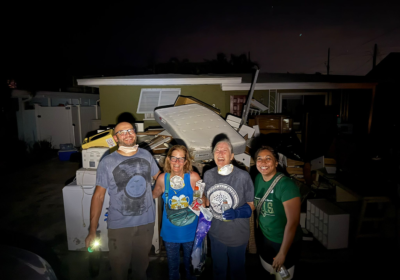USF study: Increase of gastroschisis birth defect found in babies of young mothers
More women under the age of 20 are giving birth to babies with a serious birth defect called gastroschisis, a condition that is steadily and consistently increasing among babies without a known cause, according to a recent USF health study.
“There aren’t any (other) birth defects with this much of an increase happening,” Dr. Russell Kirby, author of the study, said.
Gastroschisis, a malformation which causes a baby’s intestines and other abdominal organs to grow outside of its abdominal wall because of a hernia to the abdominal lining, was once a rarely identified defect, Kirby said.
As recently as 1995, statistics of the condition showed as low as two babies in every 10,000 live births were born with the defect. But in just a decade, the numbers have almost doubled in occurrence, and data from 2005 shows that close to five babies in every 10,000 live births are affected by this disease.
Kirby and his team of researchers collected data from 13 states in the U.S.
“This disease is most common in its occurrence with mothers younger than 20 years of age,” he said.
While no causes for the condition have been identified, USF researchers found that mothers under 20 were 7.2 times more likely to have children with the condition than women aged 25-29. The study also found the highest rate of occurrence was also found in mothers reporting in the “other” category of race.
Kirby said he hopes that gastroschisis research and the disease gain more medical attention.
“It’s important for our students to understand that there are a lot of diseases that can affect their family members and children,” Kirby said. “We are searching for cures, but there are still things we don’t know yet.”






